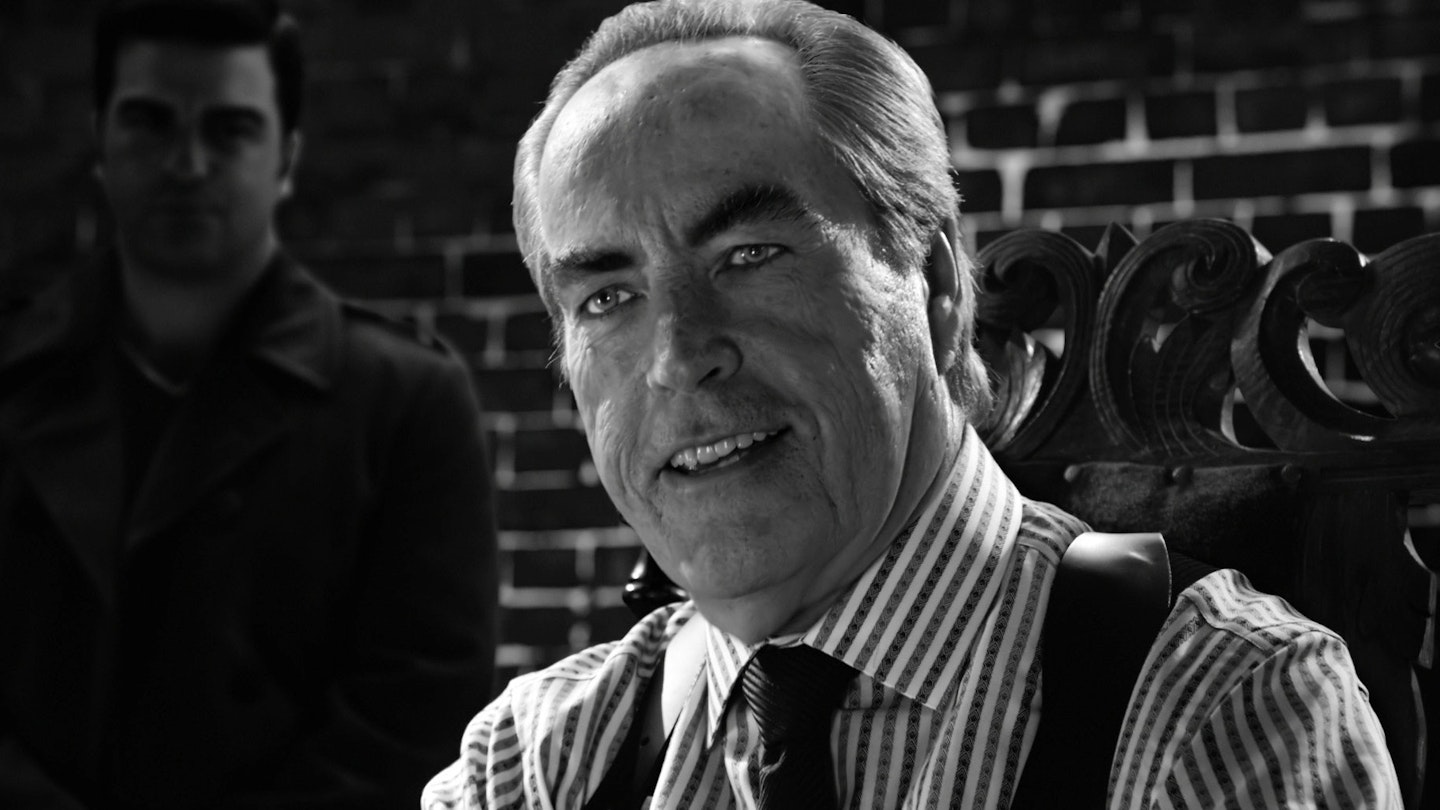Villainous character actor Powers Boothe sadly died this week at the age of 68. Possessor of one of Hollywood’s greatest cold stares, Boothe was responsible for a myriad moments of premium villainy, not least the bit in Sudden Death where he fixes his Medusa-gaze on a sobbing child and threatens to fill her mouth with spiders. “When I first came out to LA, I did quite a few roles where I actually ended up with the girl," Boothe told Empire in 2014. "But one thing has led to another and I’ve ended up playing a lot of heavies. I don’t mind: they’re more fun and often more memorable.” As tribute to the actor, here are some of Powers Boothe's great antagonist roles, with commentary from the man himself.
Senator Roark - Sin City (2005)
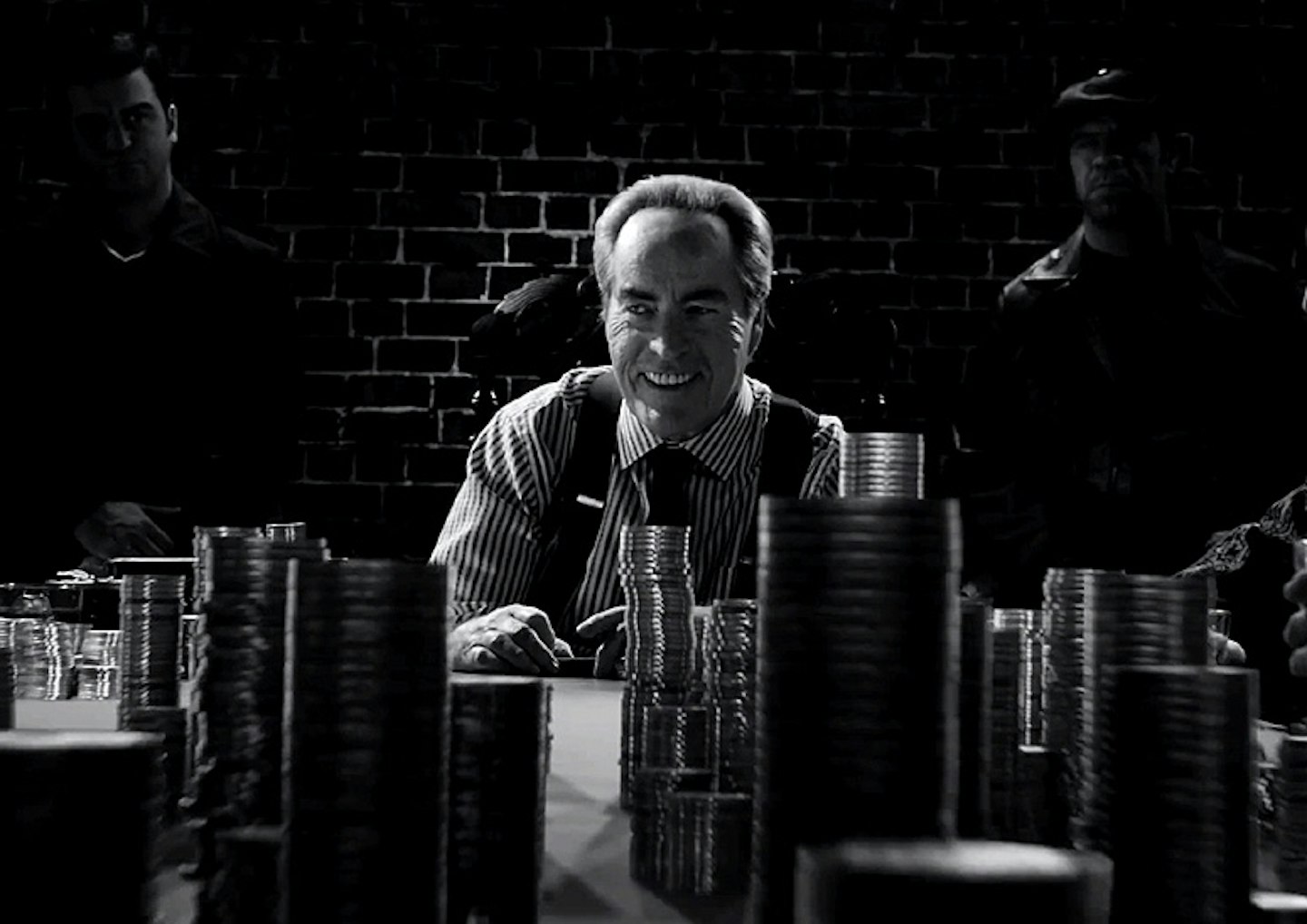
“As someone who grew up watching film noir all the time — and I’m still on Turner [Classic Movies] all the time watching movies from the ‘30s and ‘40s — to take that and move it forward to today, allowing colour to bleed into black and white and all those other tricks, is just a fantastic thing. And Roark is a hell of a part: he runs the whole town. I like the metaphor of him being the government entity, as it were, doing all this dirty business. It’s no reflection on our actual politicians, obviously!
“Roark is just ruthless. He has the money to do what he wants at this point, and he’ll do whatever he has to do to keep power in Sin City. In the first film he lost his son and he carries that bitterness inside of him. But there’s something attractive about the way he presents himself. He has style: a suave-looking, dashing look. There has to be something attractive about the dark path, or so many people wouldn’t take it.
“In the original Sin City I deliver that long soliloquy to Bruce Willis, and in [A Dame To Kill For] I have another one. What’s great about Frank Miller’s writing is that it never feels like exposition, because the dialogue is so juicy and pulpy. That, combined with the vivid imagery, just sweeps me away into another world. I find myself laughing at gruesome things! It’s like this great giant cartoon for adults. I also have tremendous respect for Robert Rodriguez. I love going down to Austin and seeing a hometown boy done good.”
Cash Bailey - Extreme Prejudice (1987)
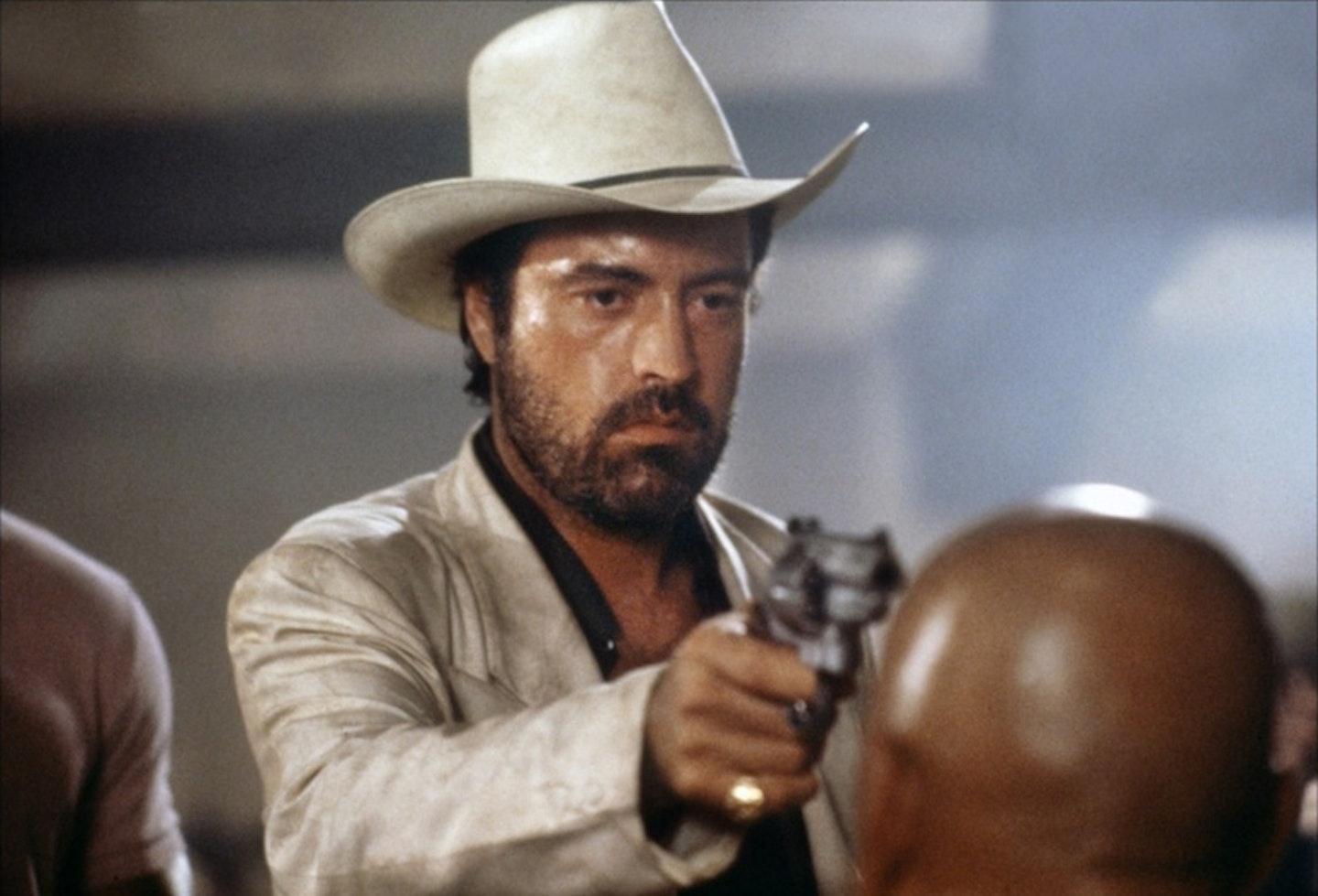
“I had no idea until we did Sin City 2 that Robert Rodriguez was such a fan of my work, and especially Extreme Prejudice. He’d quote big chunks of it between set-ups. That film was not particularly successful, but the fact that he’s a fan of it makes me feel good.
“I’ve had the good fortune to work with Walter Hill a couple of times, and to work with [John] Milius on Red Dawn, these marvelous, marvelous guys who, along with Spielberg and Scorsese and others, came out of film school in the ‘70s and changed movies forever. I loved that whole tongue-in-cheek irony of Extreme Prejudice. That stunning climactic shoot-out is one big fat homage to Peckinpah. I was lucky in that I was in the position of getting to watch it happen; I didn’t have to design it or anything. When Nolte and I were doing our duel, which of course kicks it all off, that was so much fun. We actually shot that on the first day Maria Conchita Alonso was on the set. I got up and said, ‘Hello, Maria, how are you?’ and five minutes later we were doing the scene and I’m tearing her dress off. It was a real ‘Welcome to the movies’ moment!
“The scene where I let a scorpion crawl over my hand, then crush it, is great writing — it’s amazingly descriptive of who the character is. They actually had a scorpion-wrangler who pulled the little stingers out of them and had them on ice so they wouldn’t be so active. I remember saying to him, ‘Alright, you first!’ (Laughs) I asked him to give me a demonstration and he did, so I followed his lead. They would actually try to sting you, but nothing could happen. When the camera’s on, you’ve got to show whether you’ve got cojones or not — I just relaxed and went with it. I definitely preferred the scorpions to the times I’ve had to handle a snake for a role. The Spree, a TV movie I did for HBO in Canada, is the one that comes to mind. I played a snake rancher, so there were quite a few serpents around.
“I love Cash. I love the fact that Walter wrote him for me and allowed me to be that brash. That scene in the bar towards the end where I shoot the guy and say, ‘I liked him too’ — you get to see all of what’s pushing him. It was an amazing part. And a very underrated movie. Incidentally, Walter carried that white suit I wear over into his next movie, Red Heat."
Curly Bill Brocius - Tombstone (1996)
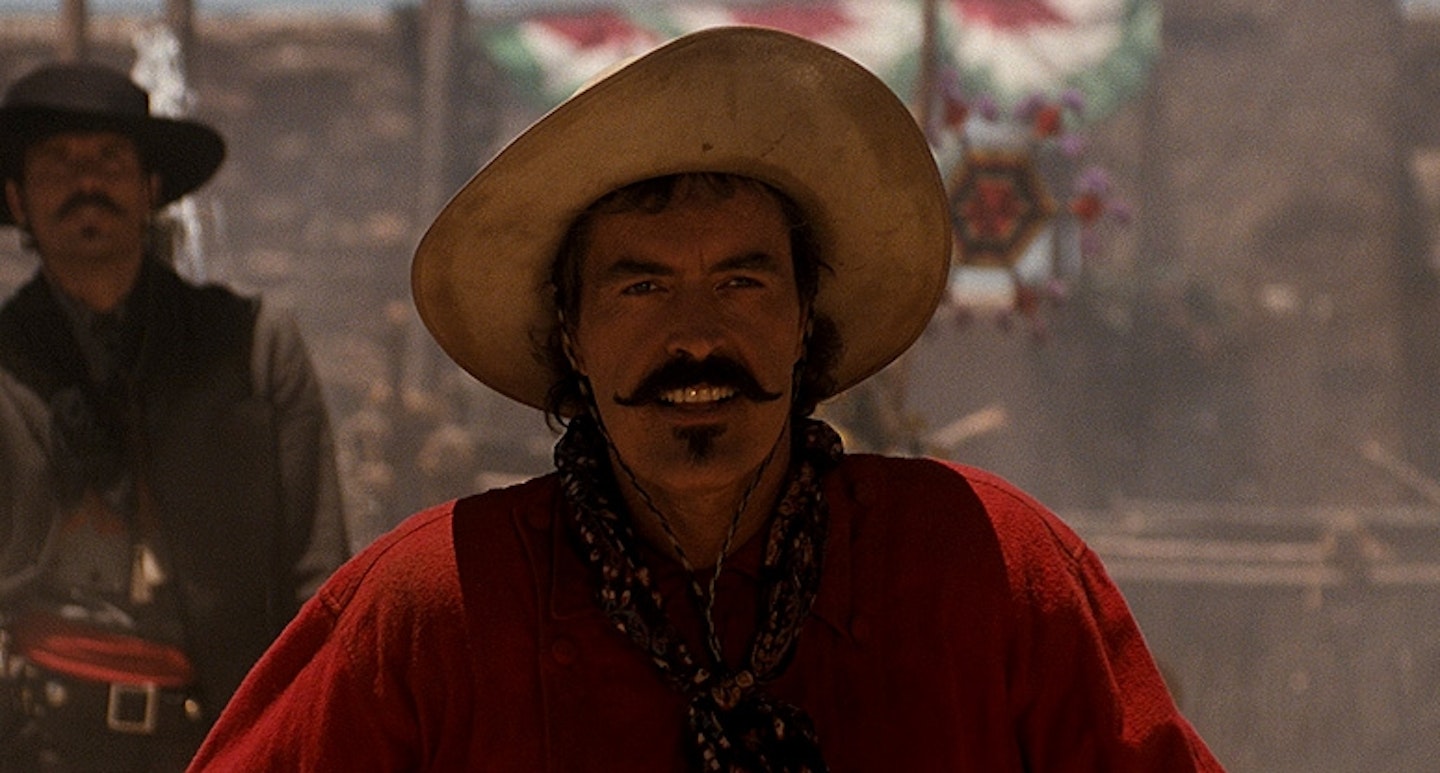
“That movie has a story behind it. The writer-director was fired two or three weeks in, and they brought in another director, George Cosmatos. He had directed a lot of films with Stallone and did over a billion dollars worth of movies. Unfortunately he never, in my mind, knew what the movie Tombstone was about. And when he came on the producers panicked and ripped dozens of pages out of the script. All the principal actors were doing the movie because they thought the script was brilliant, and suddenly it was gutted.
“All of us, particularly Kurt [Russell] and Val [Kilmer], were manipulating George to try to get him to leave stuff in the movie. (Laughs) It was a real mess. Most of the people who were fired were focus pullers. We were using these lenses that made some of the dailies look like they weren’t in focus, even though they were. And George was always screaming at the camera crew. They were dropping like flies. Guys were coming and saying, ‘Oh, I’m just here for the day. I’ll be gone by six o’clock.’ By the end they had to keep people because others just wouldn’t come.
“I lost quite a few scenes. There was one thing George always did that upset me. He always referred to the ‘good guys’ and ‘bad guys’, right? Well, it doesn’t matter what you play — you always think your cause is right. One of the things that made Tombstone work was that for the first time Hollywood didn’t have Wyatt Earp and his brothers come there to clean up the town. They came there to make money, just like everybody else. And then their morality came through. But they made a deal with the Cowboys, and they’re the ones who welched on that deal, in my opinion. So there was a whole sequence at a campfire out in the desert, with the Cowboys talking about what they were doing to do about this. Curly Bill comes out and gives this long monologue, saying, ‘Look up at the stars, because 500 years from now people will be looking up at them and remembering what we did.’ It was a St. Crispin’s Day speech for Curly Bill, which ended up with me throwing a bottle of tequila into the fire and it exploding. All that stuff made the Cowboys much more human beings, not just bad guys. In fact, the producers at some point admitted they were sorry they’d cut it all out.”
Rev. Jim Jones - Guyana Tragedy: The Story Of Jim Jones (1980)
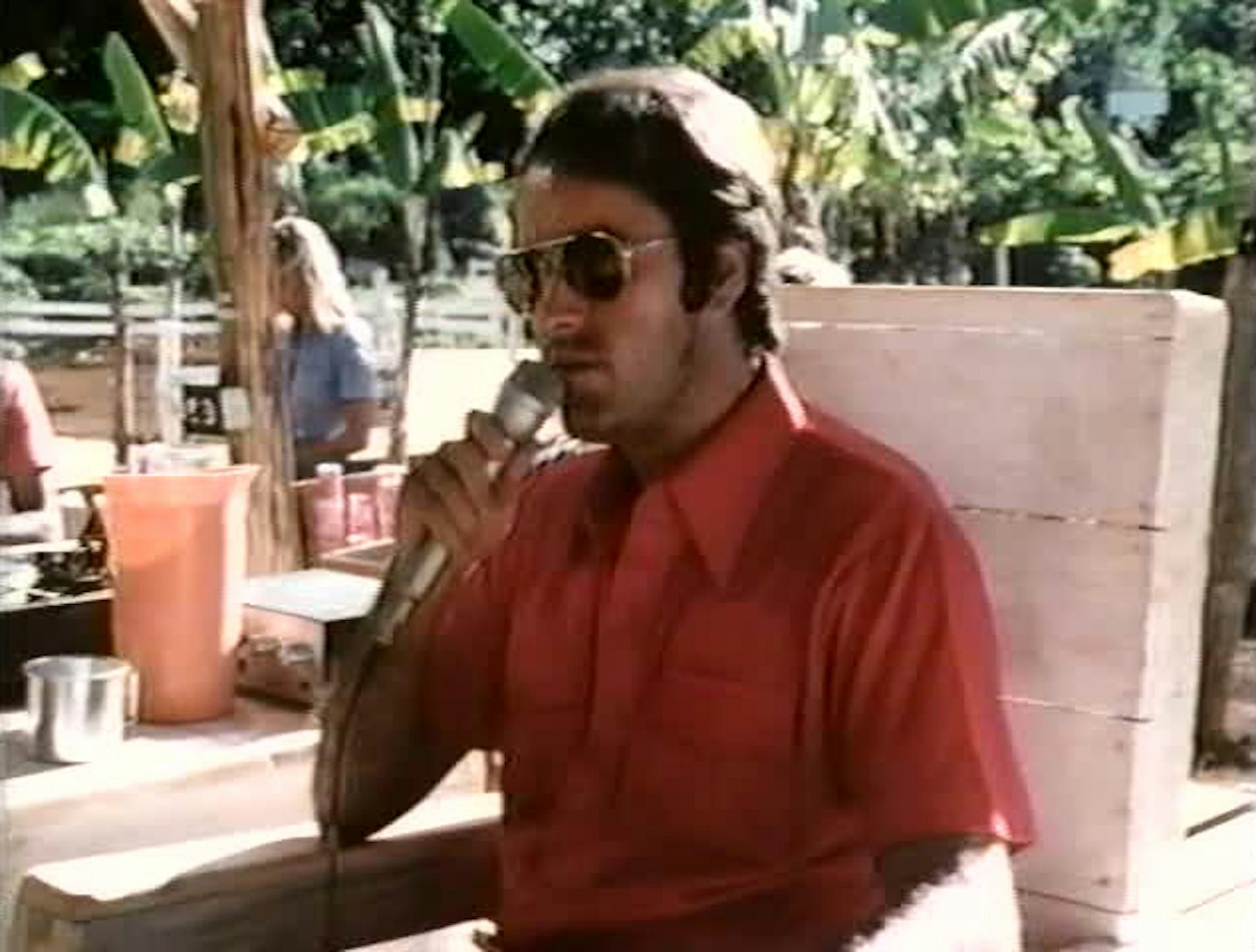
“Before I started in films, I did theatre professionally for ten years. I played Macbeth off-off-off-Broadway, I played Henry V, I played Roderigo and Cassio in Othello. Hamlet is not really to my taste — everyone always says they want to play the role, but I never have…
“I approached Jones a lot like Shakespeare, because it’s an epic saga. Ultimately he’s a paranoid schizophrenic who starts to believe his own lies. It was an intense time, because we shot four hours of TV in eight weeks and I was sometimes doing 14 pages of script a day. It was just very difficult. Sometimes I would be in a church and would have to deliver four different sermons back to back. I didn’t intend to squirrel myself away from everyone else, but it was so time-consuming that that’s just what happened. There wasn’t a scene in the whole thing that I didn’t have to carry. By the end I was totally exhausted.
“Winning the Emmy was a big deal for me; it is for anyone. And I hadn’t been in town very long. I’d had no idea that this would be a breakthrough role for me. It was just a part.”
Vince Johnson - Blue Sky (1994)
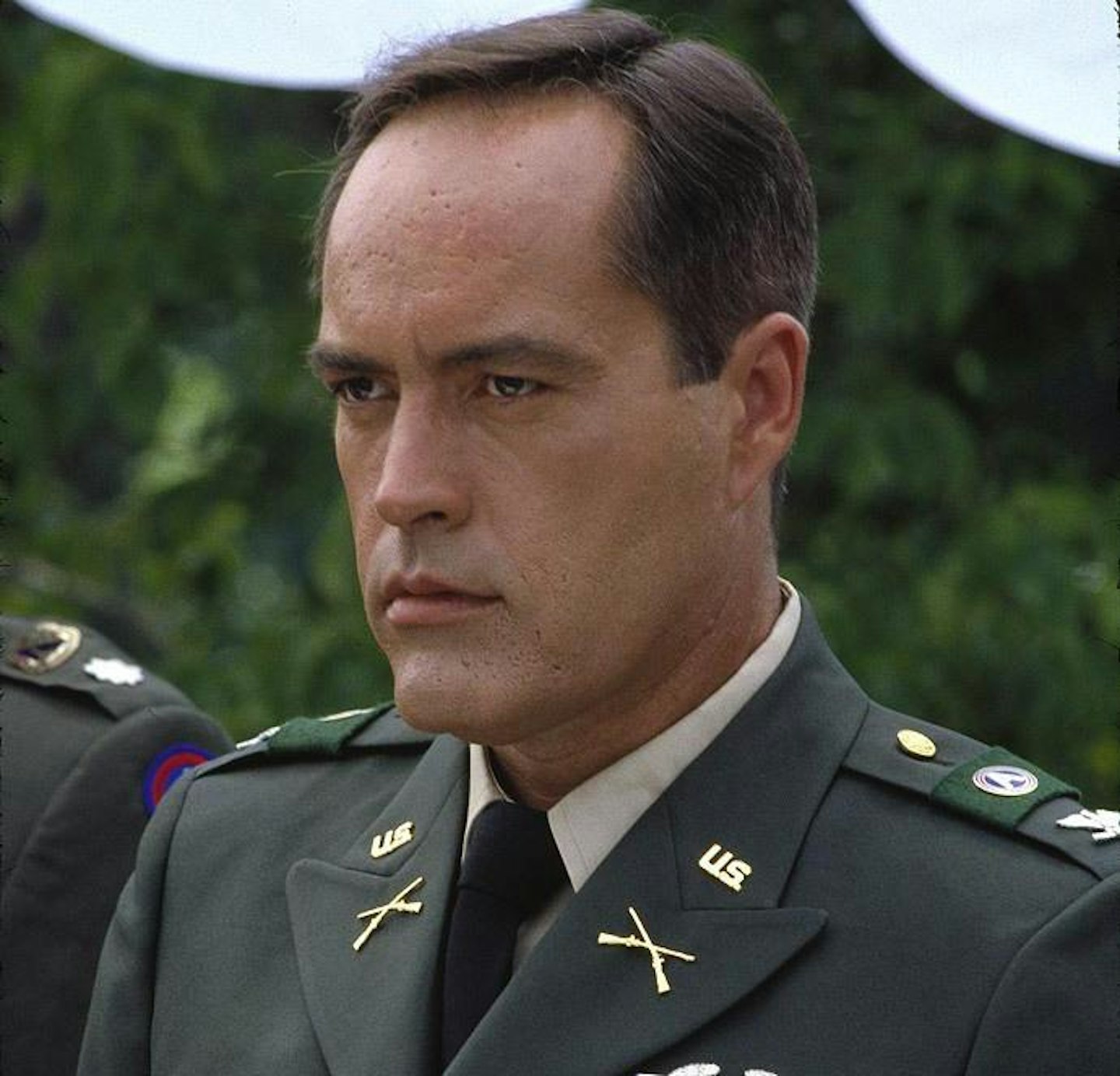
“I loved working with Tommy Lee [Jones] and Jessica [Lange]. We were shooting in South Alabama, and I remember sitting there thinking how brilliant Jessica was in particular. I kept telling my friends in LA she was going to get an Oscar nomination. But Orion, the studio, went into bankruptcy and had 12 or so films in the can that got stalled. That’s why it wasn’t released for so long. When a film is held up, it starts to get a negative connotation, but I was thrilled when it was released and she and other folks started getting recognition. And she won the Oscar. It’s an extraordinarily well-acted movie.
“I saw my character, Vince, as a pragmatist. He’s a military guy who understands the way the world is and certainly sees Jessica’s character for what she is: a tease. I remember doing the scene where they go off and have sex for the first time. The director said to me, ‘Okay, that’s enough of her bullshit. Just take her out and do what she wants to shut her up.’ That gave me the underneath of who this guy was. Love scenes are always awkward. It’s more choreography than anything else. But I was in such awe of Jessica that sometimes I had to remind myself to stop watching her. (Laughs) She was very patient with me.
“Tommy Lee and I are very similar. He doesn’t suffer fools and some folks think he’s tough to work with. I didn’t have that experience at all. We grew up in Texas about 150 miles from each other; at the time I had race horses and he had polo horses. He’s extremely well-read, much more than I. We had lunch together almost every day we were on set and he was really nice to me. I haven’t seen him since we did that film.”
Joshua Floss - Sudden Death (1995)
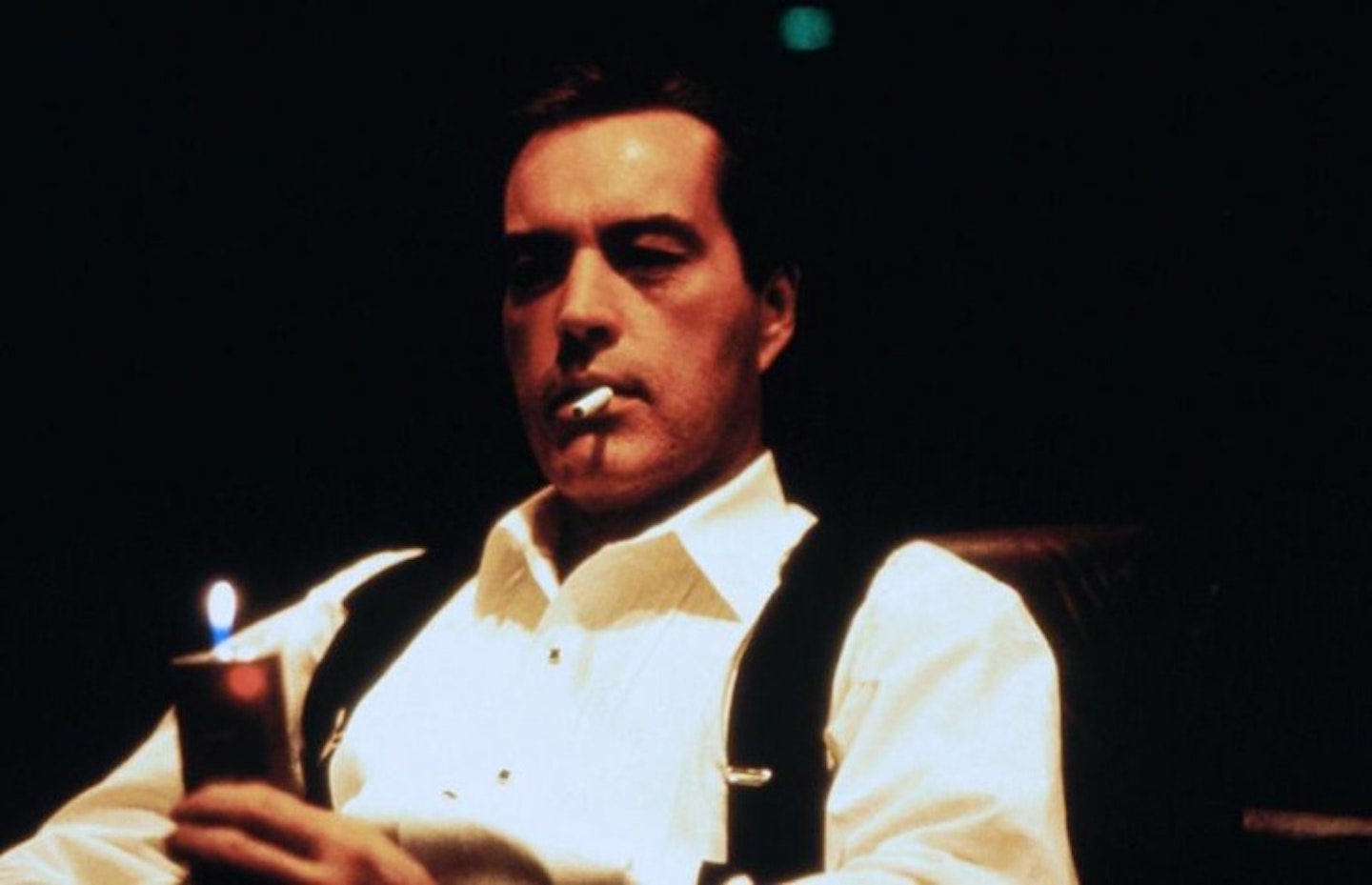
“I’ll tell you how that came about. You mentioned Tommy Lee, and Tommy Lee had just done a film with Steven Seagal. When Sudden Death came up, I quite liked the part and all that stuff, but they also offered me a lot of money. I thought, ‘Well, if it’s good enough for Tommy Lee to do this kind of thing, I can do it.’ As it turned out I had a lot of fun playing the guy. In fact, when they finished the film and did focus groups, audiences liked me so much that we went back and reshot the end to make my demise much more spectacular. I was pleased with that.
“I saw the movie again last year and I’d forgotten about the part where I threaten the girl with spiders. (Laughs) I believe I said, ‘Oh my goodness!’ It’s in the mode of Alan Rickman’s part in Die Hard, an outrageous villain. I wish I had done that part in Die Hard instead of this one, but that’s alright…”
Cy Tolliver - Deadwood (2004-2006)
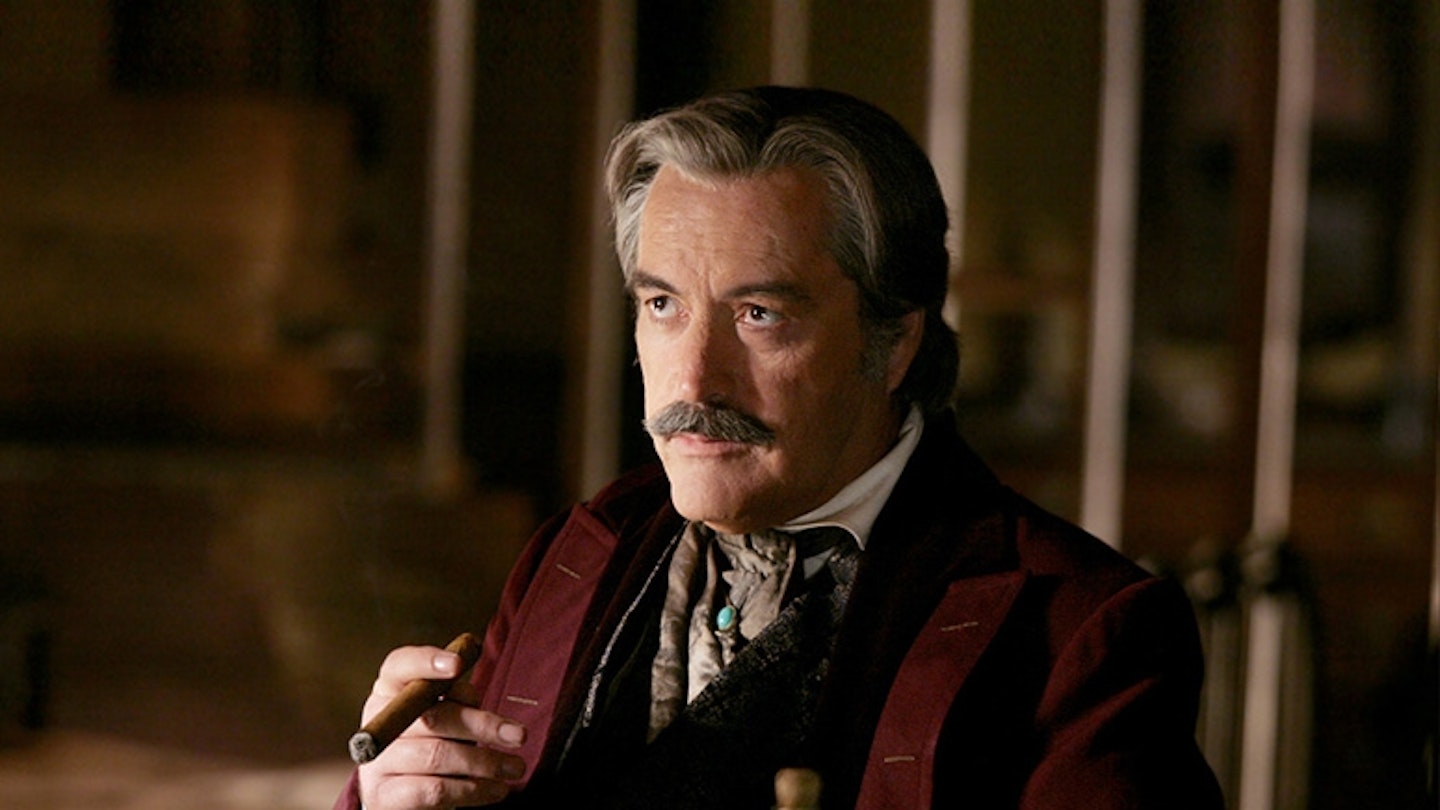
“Everybody in Deadwood was a survivor. You couldn’t be anything else if you were alive in the West during that period. Cy Tolliver and Al Swearengen (Ian McShane) were both businessmen of a different type. One thing David Milch said was, ‘Inside your own saloon, you are the law.’ So we both played that. To contrast, you’ll notice that my girls are clean and look good, while Ian’s were appealing to a less quality clientele, as it were. (Laughs) I also had a little more personal style. We tried to keep Cy above the fray, as it were. Smarter than the people who were down in the muck. Although, when he went down into the muck, he went into it in a big way. When he killed people that crossed him, he didn’t mess around.
“I just loved all the different characters and the period detail. It was extraordinary. We’d be in the middle of a scene in the street and a horse that was tied there would take a big piss. And it would be in the show! They wouldn’t cut it out. In the old days, of course, they would have done. After a while the whole place started to reek, but it was great. I loved coming to the set every day. You put the clothes on, walk onto the street or into your saloon and you were in it, you know? You were in that world. It was fantastic.
“Ian and I got on well. He was extremely busy, as was I, and we didn’t have that many scenes together. But I have tremendous respect for Ian, not just for Deadwood but for his whole career. Have I seen Lovejoy? You know, I never did, because it wasn’t aired over here. But we discussed it somewhat, and from what I gather Lovejoy and Swearengen are rather different!”
World Security Council - The Avengers (2012)
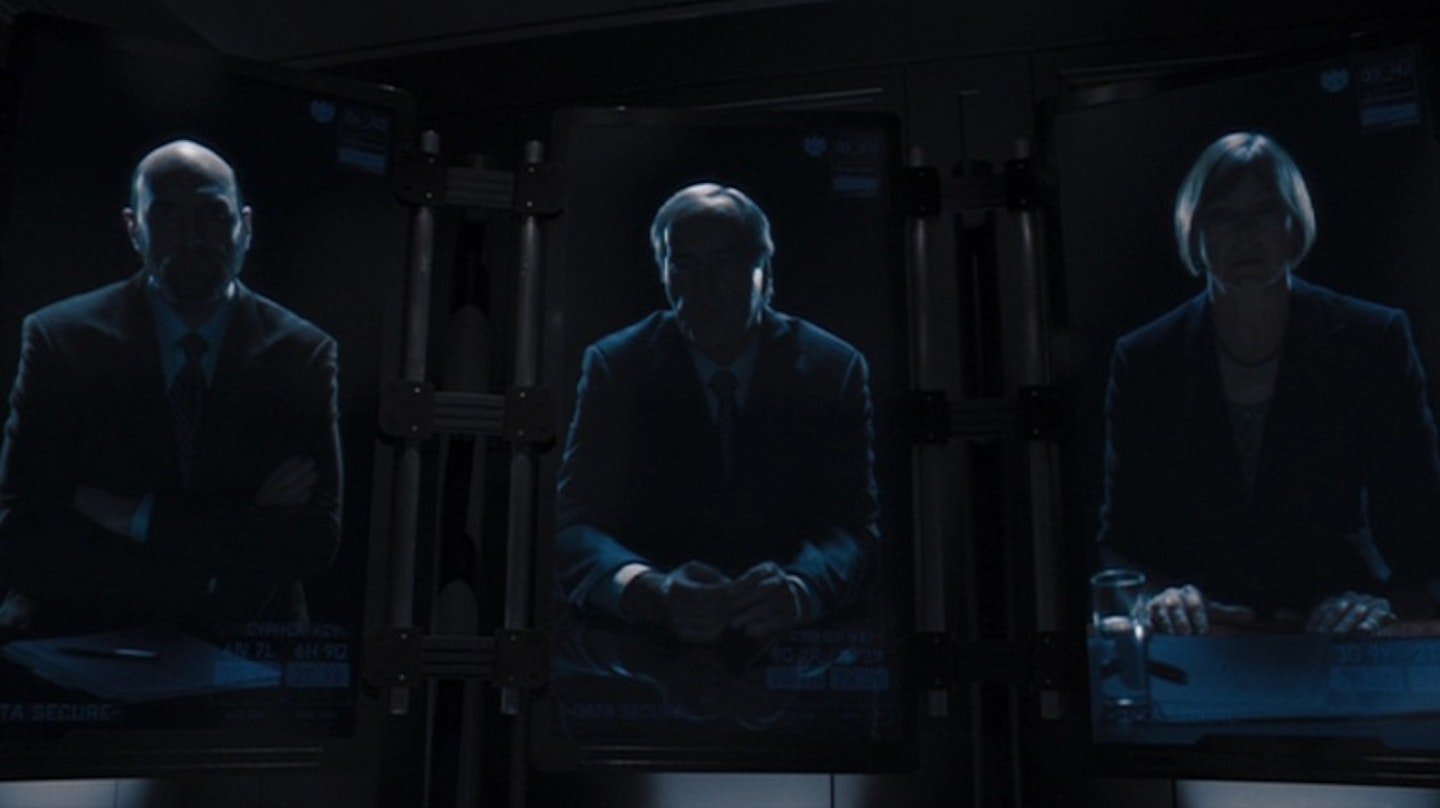
“I got this strange call from my agent. The director was asking for me, but they didn’t know if my scenes were actually going to be in the film or if we were just going to be voiceovers or murkily off-camera. So I went down and shot this stuff in Los Angeles — the set wasn’t even there. In the end, I was happy those scenes turned out as well as they did. It’s nice to be in a great big commercial film, and those are the comic books I grew up with. I was asked back for another one (Captain America: The Winter Soldier), but unfortunately I was doing Nashville at the time.”
